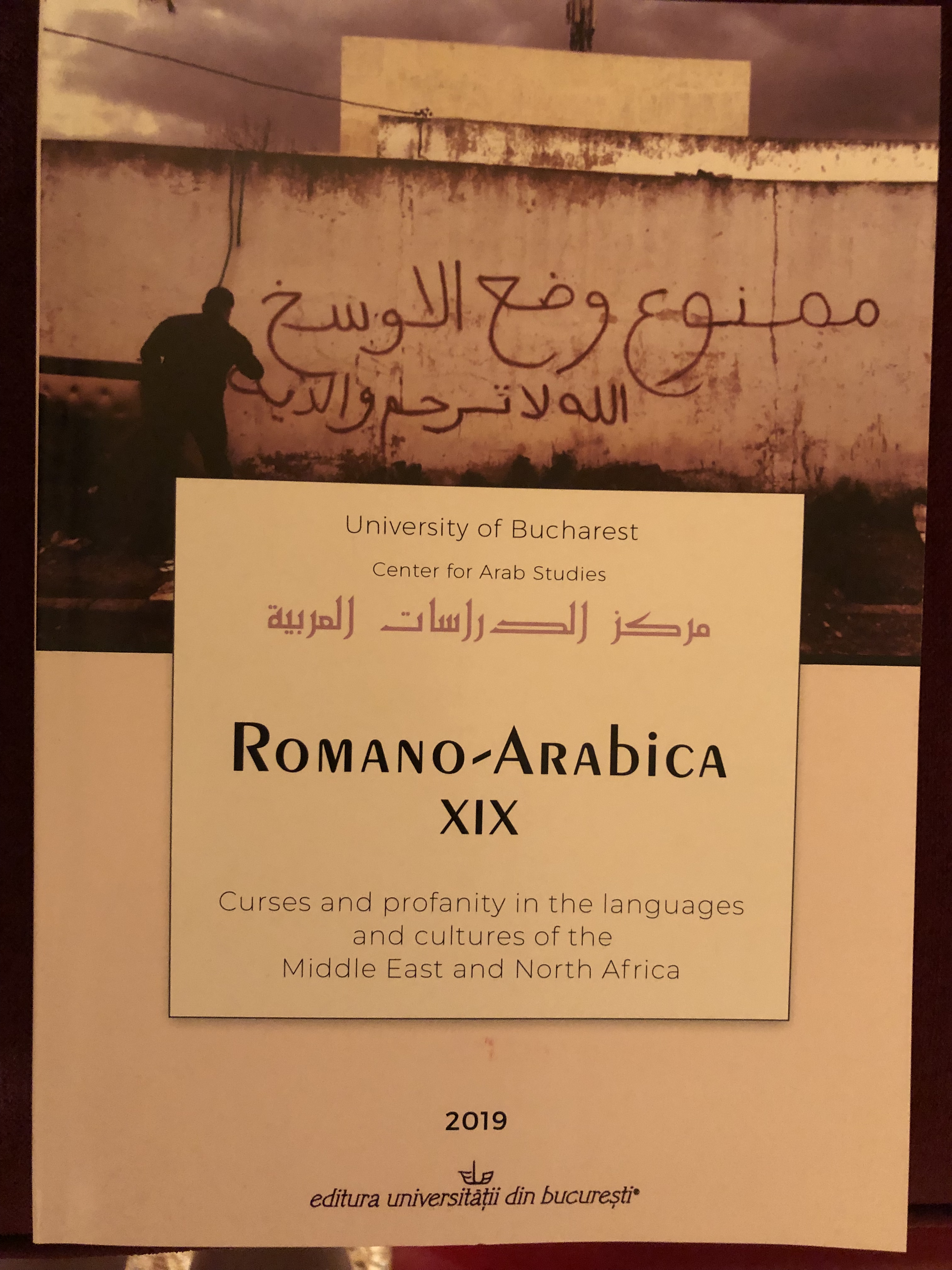RHETORICAL FEATURES OF CURSING AND FOUL-MOUTHED SPEECH IN CONTEMPORARY MASTERS OF MUǦŪN: MUẒAFFAR AN-NAWWĀB AND NAǦĪB SURŪR
RHETORICAL FEATURES OF CURSING AND FOUL-MOUTHED SPEECH IN CONTEMPORARY MASTERS OF MUǦŪN: MUẒAFFAR AN-NAWWĀB AND NAǦĪB SURŪR
Author(s): Chiara FontanaSubject(s): Language studies, Language and Literature Studies, Philology
Published by: Editura Universităţii din Bucureşti
Keywords: cursing; balāġa; muǧūn’s poetry; pragmatics; Muẓaffar an-Nawwāb; Naǧīb Surūr;
Summary/Abstract: Studies in pragmatics have shown that cursing and foul-mouthed expressions (C/FMEs) are influenced by conversational variables such as the speaker-listener relationship, implicatures, and the context of communication. Within the Arabic linguistics tradition, and specifically with respect to al-balāġa, these variables are one of the main subjects of inquiry. Specifically, the linguistic naẓm of cursing and swearing and their features such as brevity (īǧāz), communicative impact (ṭabʻ balīġ) and use of figurative speech (luṭf li-lmaǧāz) reveal how these expressions are based on rhetorical patterns. Taking into account the jestful, foulmouthed and/or libertine poetical style of muǧūn within the Mediaeval Arabic Literature tradition, the rhetorical patterns of implicit and explicit illocutionary C/FME acts, as mostly used in ironic/satirical discourse, reveal how C/FME can be employed as a powerful literary device. This paper aims to observe the rhetorical features of C/FME as employed in contemporary muǧūn, drawing upon the in-depth analysis of excerpts quoted from the poetic works of the Iraqi poet Muẓaffar an-Nawwāb (b. 1934), and the Egyptian poet Naǧīb Surūr (1932 - 1978).
Journal: Romano-Arabica
- Issue Year: XIX/2019
- Issue No: 19
- Page Range: 99-114
- Page Count: 16
- Language: English

